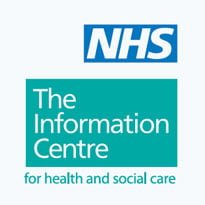The NHS Information Centre has switched on its new trusted data linkage service, linking patient identifiable data nationally for the first time.
Chancellor George Osborne made a commitment in his last Autumn Statement that, from September 2012, the NHS IC would provide a secure data linkage service to enable healthcare impacts to be tracked across the entire health service.
The service went live this month and involves patient identifiable primary care data being linked to identifiable secondary care patient data. Further patient identifiable data types will follow, together with social care data.
The NHS Commissioning Board will be the main customer, using the data provided to drive ‘evidence-based commissioning’.
The service is also an enabler of the government’s open data agenda, mobilising and linking data to improve and redesign services.
NHS IC executive medical director Dr Mark Davies told eHealth Insider: “The data outputted could be identifiable where legally supported, but it is more likely to be aggregated, anonymised or pseudonymised.”
The main uses of the data will be “business intelligence for commissioning, public health analysis, service development and for research," he added.
Other uses of linked patient identifiable data within the public sector could include looking at the relationship between road traffic accidents and A&E attendances.
The NHS IC already has a memorandum of understanding in place with the clinical practice research datalink to provide it with a data linkage service.
Future uses will include opening up the data service to medical research and the life science industry via CPRD.
The creation of the national linkage service builds on previous linkage services developed by the ‘old’ NHS IC, but marks one of the most significant changes in the new health and social care information set up.
The Health and Social Care Act created the power for the NHS IC to hold patient identifiable data without first seeking section 251 approval as had been previously required. The centre can now also require data disclosure from any health or social care body.
Dr Davies stressed that the data linkage service is not about creating a central database of patient records for operational primary records like the Summary Care Record or detailed care record, as had been planned by NHS Connecting for Health.
Whether the distinction is drawn by privacy campaigners is likely to be an early test for the new NHS IC.
Dr Davies, a GP of 20 years, is adamant that such concerns are groundless.
“When as a GP you see a patient the contract is you keep their data secure and that remains the same foundation.”
“There was a great deal of debate about [data linkage] as the Bill went through Parliament and people realised that this was needed and it was better to do it centrally with very high levels of security and governance.”
He said that many patient identifiable databases and indexes – electronic and on paper – exist across the health service, but the argument that their fragmented nature made them more secure were weak.
Dr Davies added that the ability to gain meaningful and actionable insights from very big data sets has rapidly developed.
“The power of big data, together with advances in processing and storage have transformed how you can generate BI [business intelligence].”

